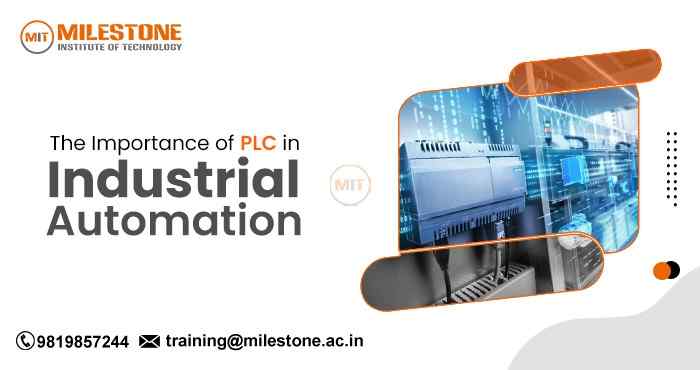
Introduction
Programmable Logic Controller (PLC) is the game-changing technology in the area of industrial automation. PLC in Industrial Automation once seemed like machines manufactured only for the automation of various industrial machinery, but little did we know that they are a rugged and reliable computing system that can run efficiently in industrial circumstances that seem impossible. It allows automation of complex processes, real-time feedback, and adaptation, which makes it the bedrock of all modern industry.
Cutting downtime, greater operational efficiency, and a need for highly flexible manufacturing, are the requirements of today’s industry. The growing demand for automation in industrial applications has earned PLC in Industrial Automation its well-deserved share of the spotlight. While the upfront costs can be daunting, the long-term benefits resulting from increased efficiency, reduced energy use, and improved labor will outweigh the expense. With industries moving to smart and sustainable practices, the ubiquitous use of PLC in Industrial Automation becomes increasingly important.
What is Automation?
Automation refers to technology performing tasks with little or no human intervention. As a consequence, they produce more efficiently, with less errors and increased consistency. Automation automating the process with the help of industrial machinery, software systems or robotics in various industries like manufacturing, IT, marketing, customer support etc.Key Advantages of Automation:
- Productivity: More efficient processes enable people to spend their time on tasks of greater value.
- Cost Reducing: Helps in automating and reducing the human labor.
- Performance: Reduces human error, provides consistent output.
- Scalability: Allows for growth without proportional cost increases.
Real-World Applications:
- Manufacturing: AI-driven assembly lines.
- Technology: Self-monitoring software systems.
- Marketing: Email campaigns and lead scoring.
- FAQs: Chat-bots and smart response systems.
What is Industrial Automation?
Industrial automation is a technological miracle that is driven by systems such as computers, sensors, robotics, and others. It enables the large-scale production of products with minimal human involvement. This technology improves productivity, increases quality, and reduces production costs in the manufacturing, energy, pharmaceuticals, and automotive industries.Key Benefits of Industrial Automation:
- Increased Efficiency: Machines can work 24/7 without getting tired.
- Improved Quality: Same, high-quality outcomes.
- Cost cutting: Requires lesser personnel space to perform repetitive task.
- Enhanced Safety: Reduces human participation in hazardous activities.
The Role of PLC in Industrial Automation
A PLC (Programmable Logic Controller) is an industrial computer that is implemented to manage and automate businesses manufacturing processes. It’s known as the brain of your automation system; controlling everything from basic motor functions to advanced production lines. PLC in Industrial Automation, meant to endure the extreme conditions of heat, dust, and vibration, is essential to conflict free operations, reliability, and flexibility.
While being modular and flexible, PLC can also be customized and scaled for the changing requirements of an industrial process. This flexibility of adjustment with speed, or an expansion of a solution, is a critical capability in PLC in Industrial Automation for smart factories and future-ready manufacturing.
Why PLC in Industrial Automation Matters?
Often utilized in manufacturing, automotive, and food processing environments, PLC in Industrial Automation provides numerous game-changing advantages:- Immediate Feedback: PLC ensure your machines have accurate control monitored in real-time.
- Versatility and accuracy: Perfect for enhancing systems and carrying out repetitive processes, enabling expansion with minimal disturbance.
- Accident Prevention: Assists in monitoring safety standards and minimizes accidents at the workplace.
- Predictive Analytics: Used in combination with SCADA systems for predictive maintenance and intelligent decision making.
Frequently Asked Questions
What is the role of PLC and SCADA in industrial automation?- PLC controls machinery in real-time, while SCADA monitors and manages processes remotely. Together, they ensure efficient industrial automation.
- A PLC (Programmable Logic Controller) is an industrial computer used to automate processes like controlling machinery and production lines.
- Industrial automation
- Process control (temperature, pressure)
- Building automation (HVAC, lighting)
- Automotive production
- Water treatment systems
- Packaging and labeling



